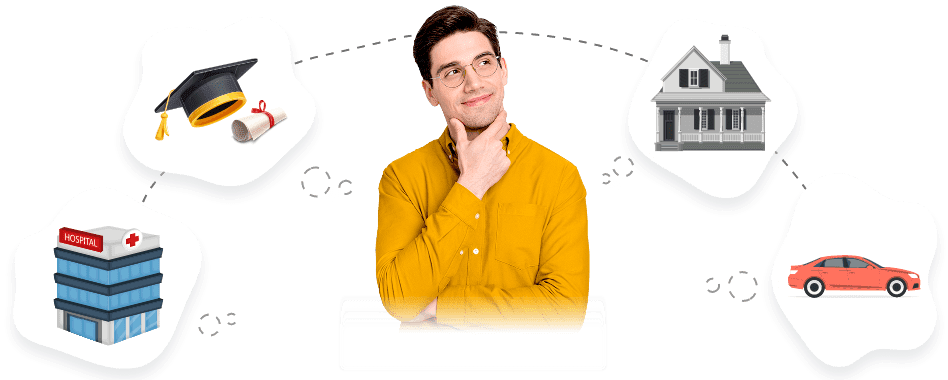Lost your Job? Here's how you can Manage your Expenses and EMI
Personal Loan up to 8 times your Salary

- Minimum Salary 5000 AED
- EMI Tenure up to 48 Months
- Lowest Interest Rates
Get personal loan at Lowest Interest Rate

Considering the market situation and scenario Kevin’s company fired several employees which turned out extremely difficult for him. He lost his job and was struggling to face the EMIs of his outstanding financial obligations. At the same, it became very difficult for him to manage his day to day expenses. In order to make sure that his property is not seized he started avoiding bank’s calls and emails.
The coronavirus outbreak has created a similar situation for a lot of expats working and residing in the UAE. In order to make sure that you do not struggle with your finances and EMIs in this blog we will shed light on ways and methods that will help you to take care of your finances in case you’ve lost your job.
Retrospect and Re-evaluate
The first and foremost to be taken in a scenario of losing your job is to retrospect. Right after you’ve been laid off you might find yourself surrounded by different types of emotions like anger, or fear of losing the stable source of your income or concern regarding the management of your expenses without the support of a job.
Instead of getting stuck in the trap of emotions the best way is to accept the reality and recognize that it is normal to experience such emotions during difficult phases like these. Give yourself some time and try to reflect on the variables that led to the loss of your job. Once you’ve figured out the reason behind the loss of your job work on your weaknesses in order to transform them into your strengths.
Plan and Budget Distinctly
Now that you don’t have a solid regular source of income you need to change the way you used to spend money and budget back in times. The first thing to do is to assess your expenses, begin by focusing on necessities such as food, shelter, clothing, utilities, and transportation. Your current expenditure should be rigidly planned and executed to avoid any hassle. The major place where you can save money is your lifestyle expense. Initially, it might appear to be challenging and difficult but this is the way you’ll manage to make ends meet during this phase of turmoil.
Once you’ve evaluated your necessities, build a plan to manage your expenses on these necessities, and stick to it. Keep a well-versed record of every penny that you spend on anything as it will help you to manage your finances more efficiently. Do not have a carefree attitude if you have a considerable deposit of capital in your emergency. Try not to exhaust it quickly.

Analyze the Impact on your Financial Obligations
The next most important step begins with figuring out how will you manage to repay your outstanding financial obligations such as credit card bills, mortgage, education, Personal loan, etc. As there is no regular source of income it is vital to have a contingency plan in place that will help the debtor to repay the EMIs.
Now if you do not have a savings bank account with enough savings to repay all the debt begins with prioritizing the repayment of those debts that have a higher rate of interest applicable to them. Try and eliminate debts with high interest first instead of debts with lower rates of interest. Keep a track record of all your expenses along with repayment of debts.
The concept of priority applies to bills and utility expenses as well. Prioritize your utility bills and other expenses in the order of their usefulness. In such a scenario it becomes extremely crucial for one to have a clear idea of where they stand financially and arranging expenses in the order of their priority. When you assess your financial situation you will find out that you can effectively streamline your expenditure.
Making Use of Savings and Investments
When an individual comes across a financially stressful the first resort that they seek is savings and investments. If you don’t have an emergency fund for such unforeseen events on the uncertain trail of life it will become difficult for you to make the ends meet. Ideally, you should have a minimum of 6 to 12 months’ worth of income as savings to counter the strokes of uncertainties like loss of a job.
Always remember loans should be your last choice for making the repayment of your debts. Try to make use of savings and investments as the primary tool for the repayment of outstanding debts.
In a Nutshell
Loss of job might appear to a very difficult phase on the trail of life, but certainly, it is not the end. The roller-coaster of life goes through several ups and downs and the loss of a job may be one of them. With the mentioned strategies you can combat this difficult phase and get your life back on track the way it used to be.

More From Personal Loans
- Recent Articles
- Popular Articles













